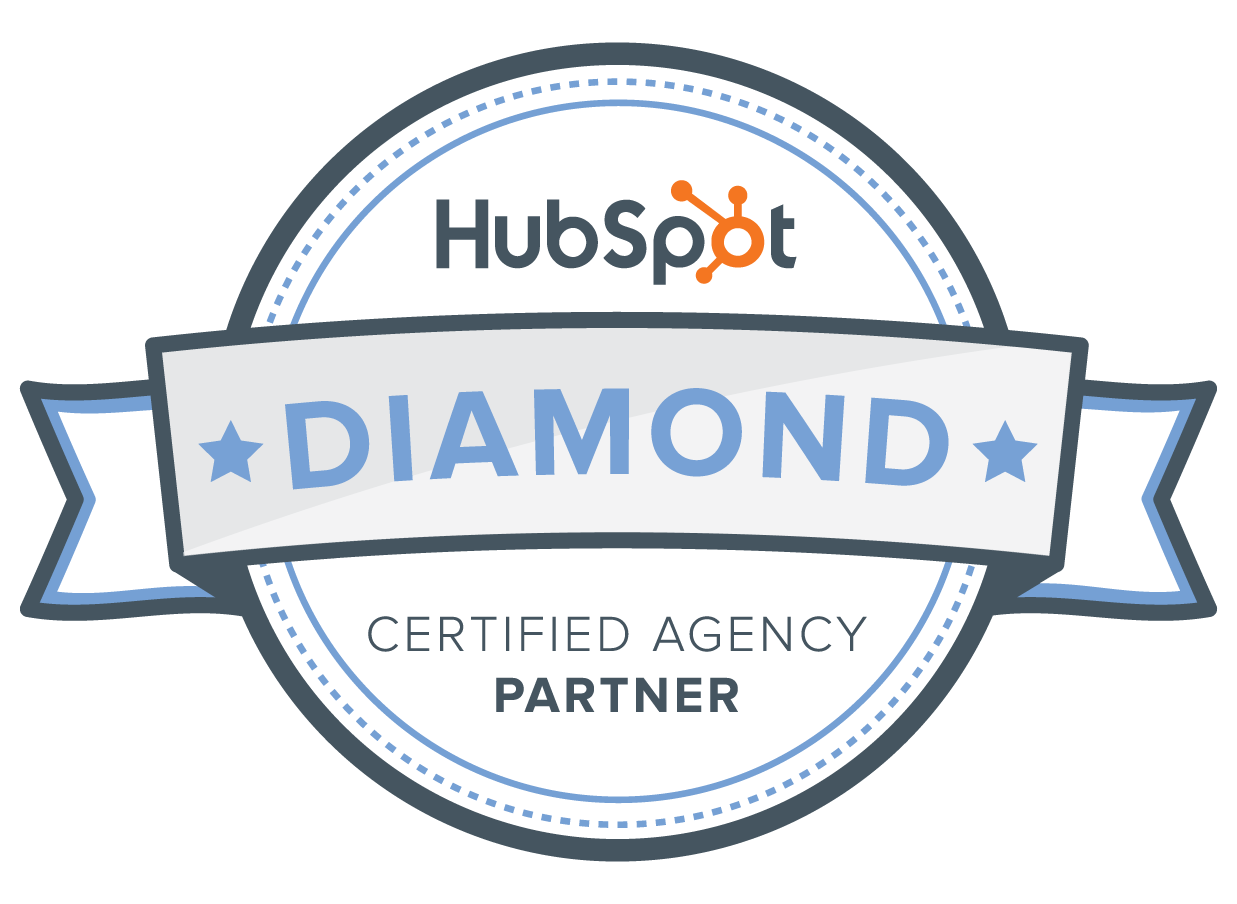What do you need to develop a killer B2B marketing plan -- or scale it to support new business growth? In this guide, we review 9 critical elements that every B2B marketing plan needs in order to generate, nurture and retain qualified leads.
1. The Right Software Platform
Some B2B organizations may find that over time, they end up with scattered subscriptions to a variety of marketing tools and services. These may include an email marketing service, a social media scheduler, a site hosting program, a CRM, and more. A comprehensive marketing platform can bring your B2B strategy to the next level by connecting systems and enabling true insight into the success of your marketing programs.
Here are some of the top marketing solutions for B2B businesses:
- HubSpot: A comprehensive marketing solution that is perfect for small, medium, and large B2B companies. With 24/7 support and an easy-to-use interface, HubSpot users can start marketing ASAP with this solution.
- Marketo: Branded as a comprehensive Enterprise business solution, Marketo can help you automate your marketing and start to drive measurable results.
- Pardot: Backed by Salesforce, Pardot is a powerful marketing automation tool that integrates seamlessly with Salesforce.
If you’re still building toward a more robust solution, or don’t yet have the budget for an all-in-one platform, that’s okay. As a helpful starting point, we suggest the following:
- An email platform. Most of our B2B customers use MailChimp, but you might also like Constant Contact, Omnisend, or Campaign Monitor, to name a few.
- A social media scheduling and/or performance monitoring system. Hootsuite and Sprout Social are excellent choices.
- A website performance software. Google Analytics is the best.
- SEO software: SEMrush and Moz can also help you track success when it comes to SEO. (We are partial to SEMrush.)
- A CRM (customer relationship management) platform. This allows you to keep track and manage contacts in your sales and marketing funnels.
- A reporting suite. We really love Databox’s ability to combine disjointed systems into one, live dashboard (or dashboards) so you can see everything you need in one place.
PRO TIP: We’ve worked with just about every platform out there and believe HubSpot is the best solution for B2B marketers looking to build a solid, measurable B2B marketing strategy without all of the hassle of multiple systems. HubSpot gives you everything you need in one place: email marketing, social media performance, an easy-to-use CMS, a fully-integrated CRM, and a suite of analytics and performance tools for all aspects of your marketing. It’s both affordable and scalable for businesses looking to start small and grow better. Best of all? Many of HubSpot’s tools start with a freemium version, so you can try before you buy.
2. The 90-day plan: Targeted campaign strategy
What is the goal of your marketing for the next 90 days? Is it...
- Generate 2x as many leads for existing products and services?
- Launch and promote a new product or service?
- Improve organic reach by ranking for 3 new high-value target keywords?
- Generate 12 new on-demand demo views?
A good first step is identifying tangible SMART goals; meaning goals that are Specific, Measurable, Attainable, Relevant, and Time-Bound. While such goals should be made every quarter, the tactics, materials, and strategies you use to achieve them should be bucketed under a strategic campaign.
PRO TIP: Your campaign will not only outline the goals of your marketing but will include every asset you’ll create or leverage to get there. Keeping your materials logged and tracked in one area is key to seeing what works and what doesn’t -- so you can adjust your approach for the next 90-day push.
Not sure what to include in your 90-day B2B marketing plan? Read on -- the following ideas will help!
2. A solid content marketing strategy
A solid content marketing plan is at the core of your online success. Keep in mind, a few blogs are not enough to see real results!
What should a B2B content marketing plan include?
- Buyer persona research: You have to know your audience inside and out in order to create content that’s tailored to your readers. One of the biggest mistakes you can make as a B2B marketer? Assuming you know what your buyers want and what they are searching for online. No matter how well you think you know and understand your prospective buyers, it’s a good idea to do some customer research before shaping your content marketing plan. Interview between 5-10 of your customers so you can really tune in to their needs. Then, create content that solves for those specific needs.
- Extensive keyword and SEO research: Finding the right keywords — and strategically using them to optimize your content — can make or break your content strategy. Overlooking this step is a huge mistake and can lead to negative ROI for your content program.
- A content and site analysis: Find out how your website and other content outlets are performing. What is your site currently ranking for? What would you like it to rank for? Are you ranking for content that is aligned with your target audience? Ask these questions to form a baseline analysis for future content goals.
- A competitive analysis: What do your direct business competitors rank for? Where are the gaps and opportunities that your business can fill with new content?
- Core content topics: What do you want to be known for? What subject would you like to be an expert in when people search for your solution? Your research will help you identify your topics. Here's a complete guide that can help you with keyword research.
- A strategic editorial calendar: Publishing well-researched content on a regular basis is key to your content-marketing success. An editorial calendar helps you target the topics you want to be known for and gives you a long-term strategic roadmap to guide your marketing efforts.
- Downloadable and high-value lead-generation content: Including white papers, case studies, product spec sheets, on-demand demos, and more. For each of these content formats, be sure to give readers a tangible ‘next step’ to take -- downloadable content is a great way to generate new leads.
- A blog and blog strategy: Once you know exactly what you’re publishing (and when), adding your content to a user-friendly and optimized blog is the next step. Every B2B business should have a well-designed blog to help create awareness among qualified visitors. Your blog strategy should include CTAs, in-line forms, and unobtrusive pop-up forms to download additional content.
- Historical content optimization strategy: If your website already includes a large volume of dated blog content, it could actually be doing more harm than good. Here’s a guide on how to optimize your historical blog content to get more traffic with less effort than a net-new blog post.
3. A lead nurture and email strategy
Once you have a solid lead database it’s time to set up marketing automation and lead nurturing. Remember, only send emails if they are targeted, helpful, thoughtful, and well-written. Your email sending score is critical to making sure your emails make it into someone’s inbox. Never send emails just to send emails. Always ask: What is the goal of this email? Am I being helpful or salesy? For more tips, check out this guide to email marketing.
In general, there are three types of email marketing you may want to consider adding to your B2B marketing plan:
- Automated lead nurture and follow-up emails: Let’s say someone downloads a piece of content on your site about dogs -- and your business has 4-5 other content pieces about dogs. Sending related content is a great way to stay in front of your core audience with the topics you know they’re interested in. Automated nurtures allow you to send hyper-relevant content at a regular cadence without much long-term investment on your end.
- Newsletters: You might also consider a helpful, industry-specific and thoughtfully designed newsletter to make sure your audience gets regular content updates from your business. A good newsletter is 80% helpful and 20% (or less) about YOU. Helpful content might include: industry news, upcoming events, tangible tips or takeaways, downloadable content, related blog posts, and more. Remember, not all of it has to be written by you -- your business can leverage credible third-party resources as well.
- One-off emails: Got a big webinar or digital event coming up? Want to showcase a really incredible blog post you spent hours researching and writing? Send a one-off email to your top engaged list as a way to keep your priority leads engaged.
4. Regular social media content
Every time you create content, you should look to your social channels as a way to amplify that content and broaden your reach. Just be careful not to talk too much about yourself -- the 80/20 rule we referenced earlier applies here as well. Make sure you’re publishing and promoting helpful, relevant third-party content about your product, service, or industry -- this will help you further engage and build trust with your audience.
For more strategies on building out your social media plan, read 7 Social Media Questions You Must Answer.
PRO TIP: A social media calendar is a great way to ensure you have content scheduled at regular intervals. When you write a blog post, don’t just schedule the corresponding social for the week in which the post is published. Schedule it for repeated promotion three, six even 12 months from its publish date. This keeps your calendar full and ensures older content gets the attention it deserves over time.
5. A paid social and PPC strategy
Did you know that as many as 70% of all online searches are done through Google? That means your Google strategy -- in other words, optimizing your content for this particular search engine -- is incredibly valuable to your online marketing success. In fact, 64.4% of Google searches will result in an ad click when the customer is specifically looking for a targeted service or product.
While a larger paid strategy can be enormously beneficial for B2B marketers, you can start by ensuring your buying-intent keywords include optimized content to display in your paid campaigns.
Starting from scratch with paid ads? Be sure you consult PMG’s 10 key questions to ask a consultant before getting started to ensure you get the most ROI from your investment in paid ads.
6. A lead scoring model
One of the most valuable investments for B2B marketing AND sales is a strong lead scoring model. Lead scoring allows you to assign a value metric to your leads so you can determine which are more qualified than others. Your scoring model should be two-fold to include the following questions:
- What are the demographics of your ideal customer? These might include company size, company revenue, budget, number of employees, job title, industry and buying pain points.
- What are the actions they take on your site or with your marketing materials? These might include number of website visits, specific page views, content downloads, contact forms, number of emails opened, number of social posts engaged with, and so on.
Your lead scoring model should be regularly evaluated and updated to ensure your metrics align closely with the ideal buyer so both sales and marketing can identify ‘hot’ leads in your database at a glance.
7. Conversational marketing: chat and bot strategy
Someone comes to your website. How can they get in touch with you right now?
Chat is now the fourth most common way for people to get in touch with businesses. That’s just behind emails (65%), phone calls (55%), and website contact forms (42%). However, chat is higher on the list than other common channels including social media, mobile apps, and face-to-face communication. If you don’t have a solid chat or chatbot strategy, now is the time to reconsider. Read more stats about chat here.
8. Regular reporting
It’s not enough to keep an eye on one particular marketing metric -- for example, traffic to your website. It’s the whole picture that matters. Marketing success should be defined by a variety of metrics -- and for that, you’ll need a fairly robust suite of reports to make sure your marketing is driving the leads and revenue your business truly needs.
Here are some standard reports we recommend:
- Website traffic by original source
- Conversion rates
- Visitor to lead
- Lead to customer
- Email engagement reports showing
- Number of sent emails
- Deliverability metrics
- Unsubscribes and bounces
- Revenue attribution reporting
- How much revenue can be attributed to marketing materials and campaigns
- Campaign success reporting
- How did all of the individual elements of your campaign perform? That includes:
-
- Site and landing pages
- Email marketing
- Paid ads and PPC
- Social messages
- Sales materials
- And everything else associated with your big push for the quarter
- How did the campaign perform against other campaigns?
- Social media reporting
- Engagement by channel
- Overall reach and growth
- Funnel reporting
- How effectively contacts moving through the funnel
9. An outsourced team to help
No one can manage an entire marketing strategy on their own. The good news? You don’t have to. An outsourced marketing team can help.
Whether it’s strategy development, content development, campaign execution, implementation of a new software solution, or general marketing guidance on best practices, the right outsourced agency can help you define and see real results over the next 90-day period. (Bonus points if they’re fun people who will come to love your business as much as you do!)
Now, here comes a CTA for you to learn more about what it’s like to work with us.
We would truly love to help! Just let us know if you have questions about your B2B marketing strategy. We respond to every comment, so drop us a line below.









